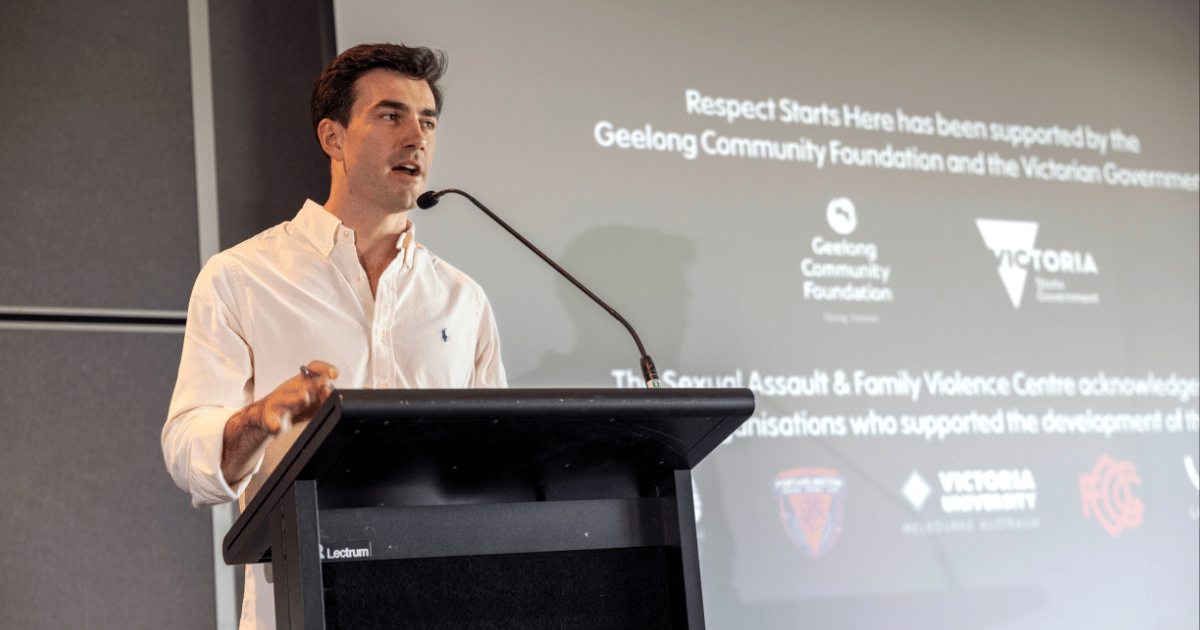In the week after I was sexually assaulted, I gathered 10 of my work friends at Cricket Australia together at a cafe and told them what happened. In that moment I was asking them to empathise with me and try to understand what it’s like to go through something that (at least to my knowledge) none of them had gone through.
But tbh… If I had come to me in that situation, I would have had no idea what to say. For me to have the EQ and the language to know how to respond to a sexual assault survivor, I had to become part of a section of society I never planned to join (plus go to therapy 60+ times and have empathy drilled into my head).
And so most people will hopefully never fully understand what it’s like for victims… but that’s the first challenge that workplace leaders have, not just with victims of assault, but all social issues, to be able to say, I have no idea what you’re going through. But I believe you, and I’m here for you.
So this piece is mainly directed to the men in the room, because more men than women are in positions of power, and less men than women know what it’s like to be assaulted.
But I’ll use myself as an example of ignorance here… Because even as someone who has been assaulted, it wasn’t until I had conversations with victims from various demographics that I learnt how wildly different the experience was to mine as a white, educated, heterosexual male.
I will never fully understand what it’s like to be a female victim of sexual assault, nor will I fully understand the experience for women of colour.
Listening to their stories made me realise how wildly different we were treated and the considerations (or lack of in my case) they were forced to make.
As men, it’s easy to forget how naive we can be to the perspectives of women dealing with sexual violence and the barriers that prevent them from coming forward.
For example… I reported my assault to the police with a level of binary thinking that I would have used to decide if I was going to report someone for stealing my car. Like, of course I will. Don’t touch my car, don’t touch my dick… or you’re fucked.
And when it came to speaking up to tell friends and family, I only did so because I learnt about the story of a woman who held onto her trauma for 15 years until it crippled her from the inside out and she committed suicide. I didn’t want to find out what holding on to it would do to me, so I told my friends immediately. Or in other words, I wanted to survive.
But then when I spoke with women and listened to their stories, I realised that they were just trying to survive this too. But for many of them, surviving didn’t look like speaking up. Surviving looked like bottling it up to prevent the onslaught of barriers society forces women to consider, such as:
Am I going to be believed?
Am I going to be told I was ‘asking for it?’
What’s my family going to think?
What is my culture or religion going to think?
Plus many more I’m sure I’m unaware of.
All of these considerations build up and make coming forward feel like an insurmountable task. And so when I compared my list of considerations to those of women side by side, for me to come forward felt like a bit of a fence I had to jump over, but for some women they’ve got to scale the bloody Great Wall of China just to be heard!
And so this stark difference in experience due to privilege made me feel slightly guilty. But as one friend reminded me… nobody chooses the privilege they’re born with. But it’s what you do with the privilege that counts, which is why I’m writing this. Because I want surviving assault to look like speaking up. I’m sick of saying “do what’s best for you”.
So if we want to see more people feeling safe to speak up, and more predators behind bars, and a society that’s safe for vulnerable people and our loved ones to walk through, we need to make surviving look like speaking.
And so one thing men can do to make people feel safe to come forward, is to acknowledge we don’t know what we don’t know. And that’s ok. In fact it’s essential.
We also need to acknowledge that the barriers are different for different people of different demographics.
And when we do this… I believe that human nature will give you the words to respond in the right way.
When I had finished delivering the news to my work mates at the cafe, I’ll never forget my 6’2“, footy playing, private school educated, RM boot 5-days a week wearing, Head of Strategy, friend who sat directly opposite me and said… “What can we do to help?”
Or years later with a Commercial Lawyer from Melbourne now thriving at the International Olympic Committee, who turned to me during Day 4 of the Lord’s Test and said “Mate, I can’t imagine what you’re going through.”
Both of those men made me feel seen and believed, which pushed my snowballing confidence to reach the end of a 6 year journey through the legal system. And so when more men, leaders and decision makers can acknowledge “I don’t know, but I’m here”, more victims are given hope of reclaiming themselves.
